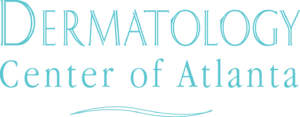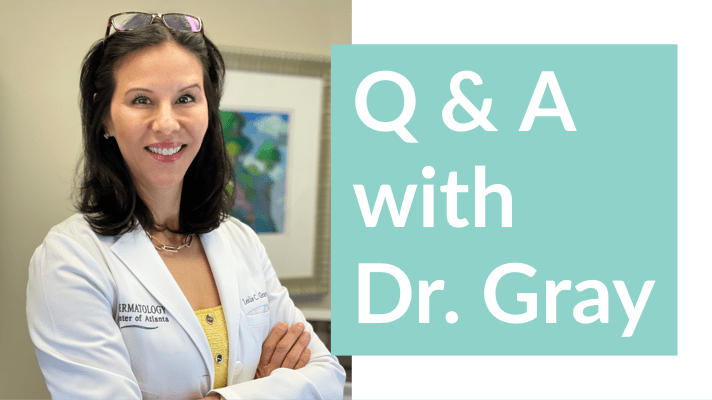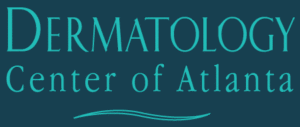New Question Every Month
Every month we are going to publish a question from one of our patients about a common skin problem along with an expert answer from Dr. Leslie Gray, board-certified dermatologist and owner and founder of Dermatology Center of Atlanta.
In our first installment of Q and A with Dr. Gray the topic is ROSACEA.
Q: Does diet affect rosacea?
Yes – diet can definitely affect rosacea.
Rosacea is a chronic (long-lasting) inflammatory condition of the skin that occurs primarily on the face, including the forehead, cheeks, nose, and chin. The symptoms come and go and can vary from person to person and change with time.
There are many known triggers that can make rosacea patients flush, blush, or breakout – including certain foods.
Unfortunately, there is no specific test you can take to discover what your edible triggers are. However, the most common offenders that may cause issues for rosacea patients are:
- spicy foods
- alcohol
- hot drinks
- caffeine
- dairy
- and foods that contain histamines such as tomatoes, citrus fruit, beans, chocolate, and nuts.
Rosacea is not curable but you may find better control if you limit these items.
If you suspect diet is affecting your rosacea and want to identify your triggers, the best thing to do is to keep a food diary and mark when your rosacea flares. A trend may become evident to you at which point you can eliminate the offending item and see if it reduces your flares.







